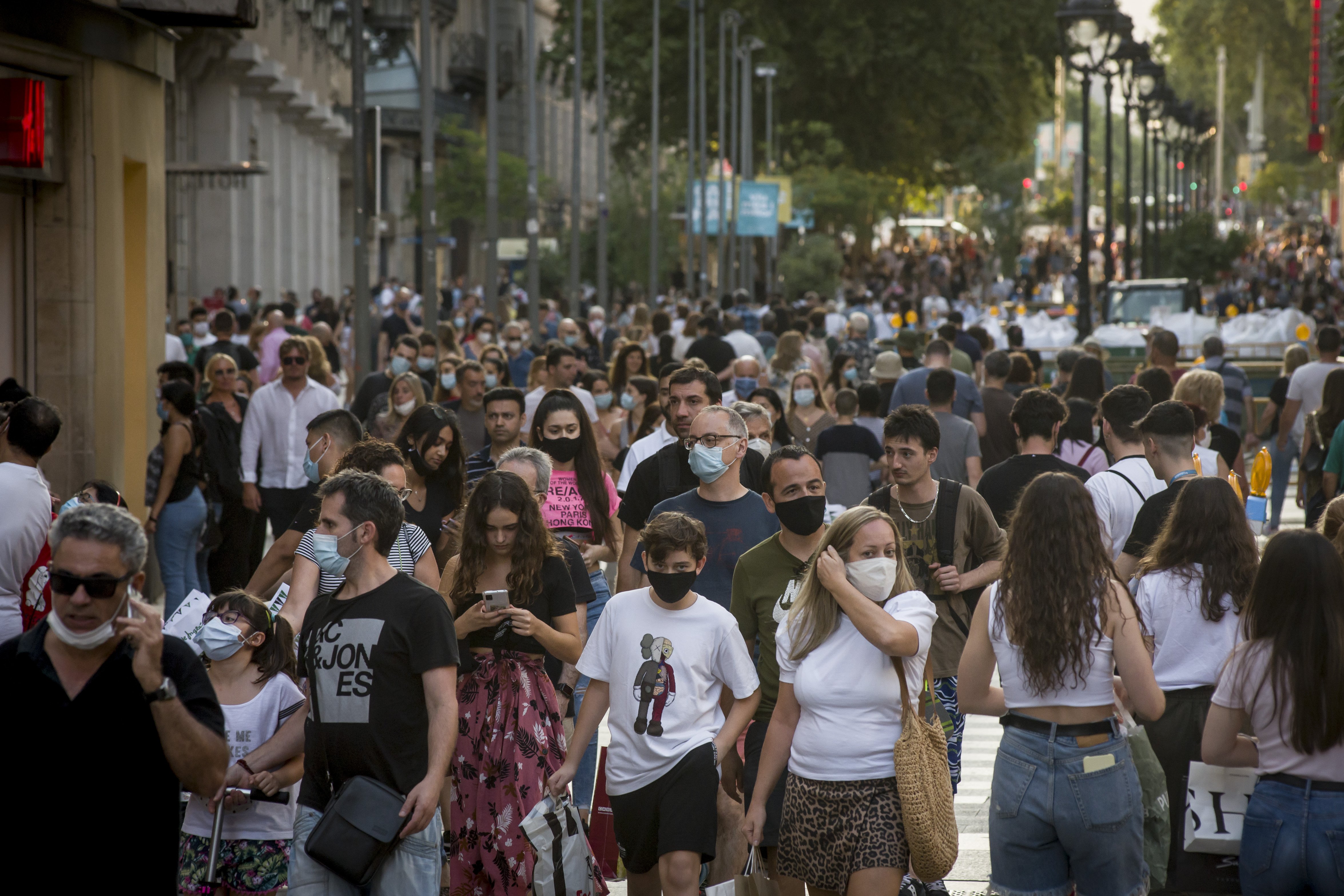Compulsory for everyone over the age of six, and in almost all public situations. That's the new rule for facemasks in Catalonia from tomorrow, Thursday 8th July. To avoid coronavirus propagation, masks must always be worn in public places, both indoors and outdoors as well as in private spaces open to the public, regardless of whether safety distances can be met or not. The essential habit for everyone must be: put on your mask whenever you leave home - even if, beyond that, there are a few specific exceptions in cases when an activity is incompatible with mask wearing, such as is when practicing sports, in certain situations in summer camps and once you're installed on the beach or by the pool. Secondary school students sitting the Selectivitat exams on Thursday and Friday will be required to wear a mask when they enter the exam room. However, once the examination is underway - since there will be no need to move from their places - students will be able to take off their masks, says the Catalan health service.
Catalan president Quim Torra announced this Wednesday morning that the mandatory use of masks, regardless of physical distancing considerations, is to come into force tomorrow throughout Catalonia. A decision that was later ratified by minister for the presidency, Meritxell Budó, after the meeting of Procicat, the government's civil protection committee. The government spokeswoman has said that the fine for not wearing a mask from tomorrow will be 100 euros.
The president of the Generalitat, Quim Torra, tells the Catalan Parliament that wearing masks is compulsory throughout Catalonia in spaces open to the public
Budó also announced today that Catalan authorities have asked municipal and county (comarca) councils to make facilities available so that there are spaces where people who test positive to Covid-19 and their contacts can be isolated. A special fund is to be set up so that local councils have sufficient liquidity to create these spaces.
New restrictions in Lleida
The government’s Covid-19 coordination meeting also took new steps in response to the serious outbreak in the west of Catalonia. A special Procicat Lleida committee has been set up to coordinate and decentralize all Covid-19 actions in the area, centred on the county of Segrià which has returned to a partial lockdown. The two priorities, explained health minister Alba Vergés, are to cut the chains of transmission and protect the most vulnerable people. "We have strengthened epidemiological surveillance, adding fifteen more people, and doubled care levels," she said, adding that the reinforcements to health facilities will also be carried out in other areas of Catalonia.
She has also insisted on the need for personal perimetering, that is, avoiding meetings of more than 10 people, and limiting social activities as much as possible, in addition to striving for hand hygiene.
To control the infections in senior citizens' residences, the 33 geriatric centres in the county will be visited in the coming days, checking contingency plans, and carrying out screening campaigns to detect asymptomatic cases.
The situation of the Segrià, however, is very different from that of the rest of Catalonia. In the locked down area, a high level of community transmission is taking place. For that reason, said Vergés, the health authorities have asked vulnerable people to stay at home. Primary care centres are working very intensively in anticipation of an increase in cases, and health institutions are aware that the measures taken will have no immediate effect, which is why the curve for new infections is expected to increase.
"Stop blaming the farming community"
Echoing a public manifesto that was published yesterday by a group of Lleida citizens, Catalan agriculture minister Teresa Jordà called for the agricultural community in the Lleida area not to be "criminalized" for the increase in new cases among seasonal workers in the Segrià fruit-growing area. "The vast majority of employers have their workers correctly under contract and comply strictly with the protocols approved jointly with the sector," Jordà defended.
She also mentioned that since March the Catalan governement's departments of agriculture, health, labour and interior have closely with the primary sector in the creation of a very complete protocol, which is being complied with, she said. "In fact, it is through this comprehensive protocol that cases are being monitored." And this was done in time, Jordà insisted.

